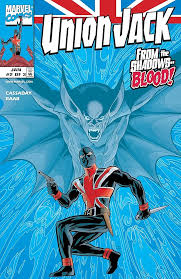The Union Jack: A Deep Dive into Britain’s Iconic Flag

Introduction
The Union Jack, with its striking combination of red, white, and blue, is more than just a flag; it embodies the identity and unity of the United Kingdom. As a symbol of heritage, the Union Jack has transcended its origins to represent British culture globally. Recent events have reignited discussions about its significance, particularly in the context of national pride and international representation.
Historical Background
The design of the Union Jack dates back to 1606, evolving through various stages to unite the crosses of St George (England), St Andrew (Scotland), and St Patrick (Ireland). Its official adoption in 1801 marked a pivotal moment in British history, symbolising the union of the constituent nations. This flag has flown over significant historical events, from the British Empire to World War II, serving as a potent reminder of shared struggles and triumphs.
Current Relevance
In recent years, the Union Jack has been at the forefront of several debates, particularly concerning nationalism and identity in a post-Brexit Britain. On one hand, it is embraced by many as a source of national pride; on the other, some view it as a symbol of colonialism and exclusion. A 2023 survey indicated that nearly 70% of respondents felt the Union Jack should represent a modern, inclusive Britain, while 30% maintained strong traditional views. This division highlights the ongoing evolution of the flag’s representation in society.
Moreover, the Union Jack continues to play a significant role in international events. During the 2022 Commonwealth Games held in Birmingham, the flag was prominently displayed, championing unity among commonwealth nations while also celebrating British athletic achievements. As global events unfold, the Union Jack often appears in discussions around British diplomacy and cultural exchanges.
Conclusion
The future of the Union Jack remains complex, as it balances tradition with modern identity. As society continues to change, so too does the interpretation of this iconic flag. Its relevance remains intact as a symbol of not only unity but also the diverse perspectives that exist within the United Kingdom. Moving forward, dialogue surrounding the Union Jack will be significant as Britain navigates its place on the global stage, fostering both national pride and inclusiveness.








